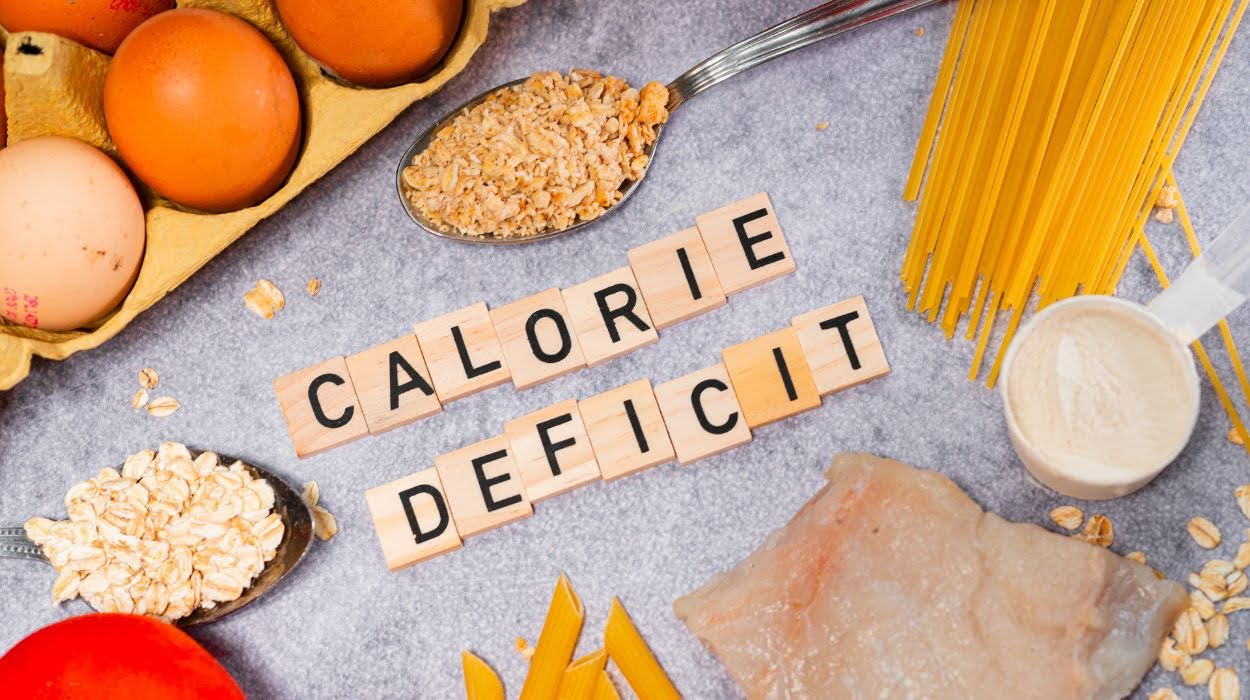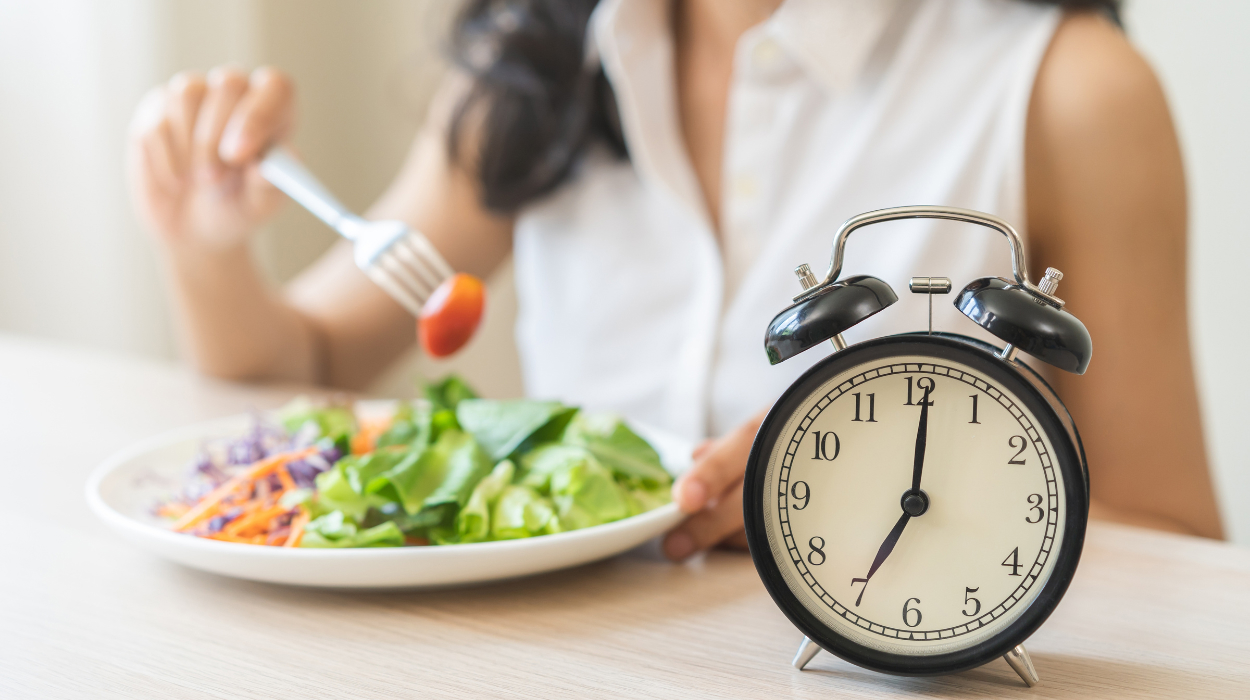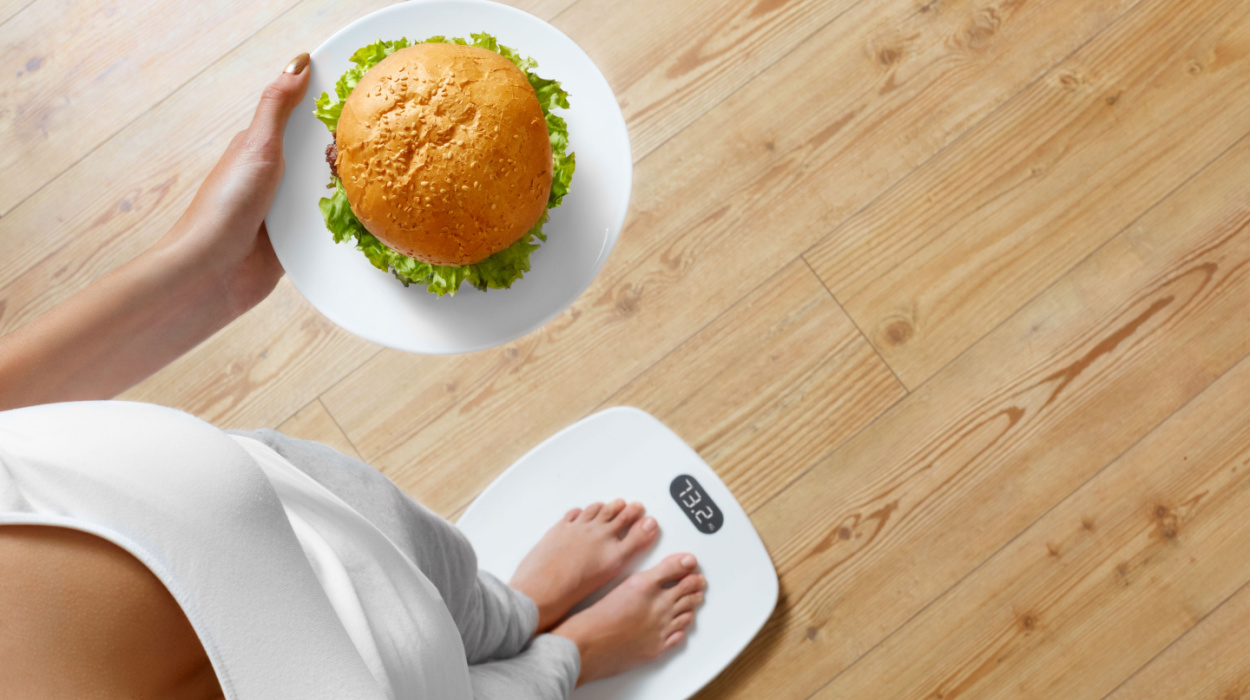Obesity is a growing public health problem worldwide,[1] affecting over 650 million adults. Researchers across the globe are studying methods to treat and prevent this condition from worsening. Many agree that low-quality food intake and a sedentary lifestyle are major factors associated with overweight[2] or obese conditions.
What if you want to know how to lose weight in 5 days? Is that possible? Rapid weight loss is often not sustainable, but losing weight within five days is possible.
Taking specific steps toward your goals will aid weight loss, but everyone is different, and results are variable. Continue reading below for a list of steps on how to lose weight fast.
How To Lose Weight In 5 Days
- Create a calorie deficit.
- Increase physical activity.
- Choose whole foods and limit sodium.
- Limit refined carbohydrates.
- Manage your stress and get adequate sleep.
- Drink enough water.
- Use time-restricted eating.
How To Lose Weight In 5 Days Through Lifestyle Changes
Lifestyle changes are essential to any weight loss journey. Methods must be followed and implemented more intensively when the goal is to lose weight quickly. Remember that severe calorie restriction diets are effective short term but not advised over long periods.
Create A Calorie Deficit

A calorie deficit is required for weight loss. That means you must eat fewer calories than you burn in a day.
Research indicates reducing caloric intake[3] by 500 to 1000 calories per day is necessary for weight loss of about one to two pounds per week.
Alternatively, a very low-calorie diet,[1] or VLCD, would require a lower-calorie intake of less than 800 calories. It is restrictive and not recommended long-term. A very low-calorie diet is effective with medical supervision for people with obesity. Notably, a VLCD increases the risk of micronutrient deficiencies[4] in the long term as opposed to intermittent fasting approaches.
Increase Physical Activity
The CDC recommends[5] a minimum of 150 minutes of moderate-intensity physical activity per week for weight maintenance and health benefits. However, you may need more than 150 minutes as it varies per person.
A research study showed adults who exercised[6] more than 200 minutes per week lost more weight than those who exercised for 150 to 199 minutes. Physical activity was combined with a low-calorie diet. The following list highlights physical activities that aid in reaching your weight loss goals.
- Aerobic or cardiovascular respiratory exercise has proved effective for calorie burning and fat loss. Cardio exercises include jogging and cycling. Approximately 30 minutes of cardio daily gets you over the 200-minute mark for higher calorie burn.
- Resistance or strength training builds muscle mass. A higher muscle-to-fat mass ratio helps your body burn calories by increasing the body’s metabolic rate. Evidence indicates[7] resistance training improves body composition and reduces visceral fat.
- High-intensity interval training, or HIIT, offers exceptional calorie burn in a shorter time. Medium-intensity exercise for 60 minutes resulted in comparable calorie burn with approximately 30 minutes of HIIT. Research indicates total body fat loss for both medium and high-intensity, but HIIT achieved it in half[8] the time.
- Walking and increasing your daily activity will help burn more calories. Reducing sitting time and being more active in household tasks[5] supports burning calories. Walking quickly or on an incline[9] increases calorie and fat burn.
If you want to know how to lose weight in a week with exercise, combine[7] cardio exercise with resistance training plus a low-calorie, low-sodium diet for best results.
Choose Whole Foods
Consuming whole foods low in sodium means eating unprocessed instead of processed foods that are lower in quality, offer minimal essential daily nutrients, and are associated with obesity.[10] Choosing whole foods over junk food lowers calorie, fat, and salt intake.
A healthy balanced diet rich in fiber, protein, carbohydrates, and healthy fats while low in sodium is necessary for optimal health. A 2020 study[11] focused on eating a whole-food plant-based diet found it supported weight loss and offered health benefits like decreased cardiovascular disease risk.
Cutting out sodium may reduce water retention,[12] helping you to lose pounds of bloated water retention, thus losing weight quickly. Limit to 1,500 mg per day for best results.
Limit Refined Carbs
Whole grains such as oats and brown rice are fiber-rich foods associated with health benefits and weight loss. Whole grains positively affect digestion,[13] slowing gastric emptying, creating a sense of fullness, and improving the gut microbiome, promoting weight loss.
Refined grains, such as those found in ready-to-eat cereals and many processed foods, have an inverse effect on appetite[14]. Refined grains have lower[12] nutrient values and are associated with higher abdominal fat.
Limiting refined carbs and replacing them with whole grains is healthier and aids in body fat reduction. Store-bought cookies and cakes are foods to avoid when considering a diet plan to lose weight fast.
Manage Your Stress And Sleep
Sleep deprivation and prolonged elevated stress levels harm your body’s hormonal balance. A meta-analysis showed a relationship between sleep restriction and weight gain.[15] Irregular sleep-wake cycles are associated with increased calorie intake due to dysregulation of appetite hormones.[16]
Prolonged elevated stress levels[17] also affect hormone balance. Increased levels of the stress hormone cortisol can subsequently cause increased cortisol in the blood. This process causes insulin resistance, which results in increased abdominal fat.
Drink Enough Water
Proper hydration is important for daily bodily function and is necessary when exercising. Not drinking enough water can cause dehydration and symptoms like low energy and dizziness. Drinking water can help your weight loss journey since it can suppress hunger,[18] leading to reduced food intake at meals.
To spice things up, drink water that is infused with herbs, spices, and fruit. Detox water can help you reach your water goals. Infused water is a great alternative to sugar-sweetened beverages.
Time-Restricted Eating

Intermittent fasting[1] is a form of time-restricted eating. This means you only consume food in a specific window of time. The result is decreased calorie intake and a metabolic boost.
Sample time periods for intermittent fasting include:
- Alternate day fasting.
- A 5:2 plan means five days per week, you eat a regular calorie amount, and on two days, you restrict calories to 500-600 or fast.
- Intermittent fasting times of 16 to 18 hours of no food or calorie-containing beverages with 8 to 10 hours of eating.
Those with hypoglycemic conditions, who are pregnant or breastfeeding, or who are on insulin should consult with their healthcare provider to determine the safety of this method.
Diet Plan To Lose Weight Fast
The steps above aid weight loss if utilized consistently. Many sources are offering fast weight loss tips. Losing 5 kilograms in five days is an unrealistic goal unless you restrict calorie intake and increase physical activity significantly.
Utilize intermittent fasting, and during your eating window, consume low-calorie nutritious foods. Follow the Mediterranean diet plan during your eating window. Load your plate with mostly veggies, low-carb fruit, and lean proteins instead of high-calorie, low-quality foods.
Don’t forget to eat a low-calorie, high-protein breakfast like scrambled eggs with 1 cup of fortified alternative milk or a green smoothie with low-fat yogurt. Drink water instead of sugary drinks or juices.
Safety Tips
There are some safety tips to consider during weight loss planning. Available information on the internet is not always valid. Look for clinical evidence-based information.
Be cautious of fad diets, products, or people claiming they lost five pounds in five days. Fad diets and products have been around for decades, claiming to promote weight loss. If it seems too good to be true, it probably is.
A 2015 research review did not support detox[19] diets as helping weight loss or management.
Therefore, trying to detox to lose weight in five days may help you lose weight, but it is likely not sustainable and could cause weight gain after finishing the cleanse.
Nutritional supplements can offer support for losing weight. Diet pills, appetite suppressants, and fat-burning supplements are readily available; however, read reviews and choose those that contain evidence-based, safe ingredients.
Is It Bad To Lose Weight Too Quickly?
When you lose weight quickly, an issue that may arise when you follow a low-calorie diet and then resume your previous diet is that you may rapidly regain lost weight. Initial body weight loss usually results from water weight, not fat, resulting from steady weight loss.
Some serious health effects can occur from losing weight too quickly. A VCLD can cause inadequate essential nutrient intake, low blood sugar, and low energy. Those with chronic medical conditions should consult a healthcare provider if interested in rapid weight loss.
Try not to be swayed by how long it takes to lose weight. The safest and most sustainable way to lose weight is by engaging in a healthy long-term diet plan and staying active.
Conclusion
If you are looking for a fast weight loss diet plan to lose five kilograms in five days, you may have unrealistic expectations. A meal plan that involves cutting calories, limiting sodium, and performing cardio exercises aids in losing weight quickly, but there are many variables.
A long-term plan for sustainable weight loss involves being regularly physically active and making permanent dietary and lifestyle changes. The benefits of a healthy lifestyle outweigh losing five or ten pounds for a short period and regaining the weight.
Consistently choosing sensible foods and activities helps with maintaining weight loss and could decrease your risk of health issues associated with obesity.
Frequently Asked Questions
Trying to lose 20 pounds in a week is not realistic or safe. Lifestyle changes and consistency are keys to long-term sustainable weight loss.
Losing weight in five days requires significant calorie restriction and physical activity. Restricting sodium to less than 1,500 mg[20] daily to lose water weight will also help.
Resistance training to build muscle mass and high-intensity interval training help to increase metabolic rate.
Trying to lose 20 pounds in one week is not recommended or healthy.
 Evidence Based
Evidence Based
